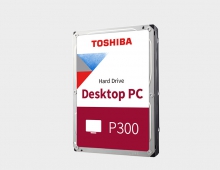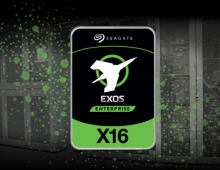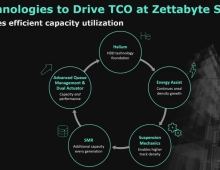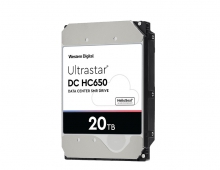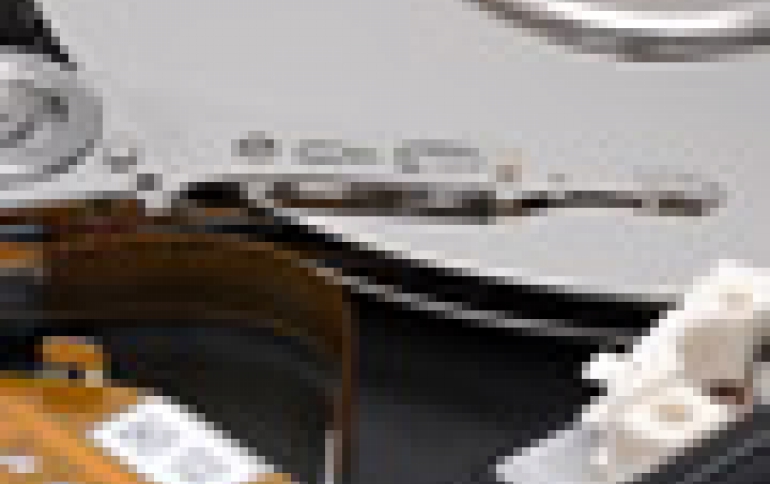
Hard Disk Drive Market Revenue Set for Decline This Year
Global hard disk drive (HDD) market revenue in 2013 will decline by about 12 percent this year, according to an IHS iSuppli, onslaught from tablets, smartphones and solid state drives.
Revenue is set to drop to an estimated $32.7 billion in 2013, down 11.8 percent from $37.1 billion last year. HDD revenue will be flat the following year, amounting to $32.0 billion in 2014, iSupply said.
Shipments for desktop PCs will slip this year, while notebook sales are under pressure as consumers continue to favor smartphones and tablets. The declining price of SSDs is also expcted to allow them to take away some share from conventional HDDs.
HDD gross and operating margins likewise will decline as a result of continued price erosion. "However, HDDs will continue to be the dominant form of storage this year, especially as demand for Ultrabooks picks up and hard drives remain essential in business computing," said Fang Zhang, analyst for storage systems at IHS.
HDDs overall will maintain market dominance because of their cost advantage over SSDs, particularly when higher densities are involved and dollars per gigabyte are calculated. HDD costs and pricing are significantly lower than SSDs, with already falling HDD average selling prices expected to decline further this year by 7 percent.
Moreover, HDDs will continue to be part of storage solutions even in Ultrabooks that make use of an SSD component. The solution, which cobbles hard disk drives together with a so-called cache SSD module, boasts of a superior price-value proposition compared to SSD-only counterparts.
A major growth area for HDDs will be the use of hard disk drives in the business sector spanning the enterprise space, cloud storage, big data and big-data analytics. Bearing the lowest cost of any storage medium now on the market, HDDs will remain the final destination for the majority of digital content that need to be filed away. And toward the last quarter of this year, Western Digital is expected to launch a 5-terabyte Helium HDD, catering mostly to data centers for enterprise servers and storage applications, further propelling the HDD space into overdrive.
IHS iSupply expects Western Digital to continue battling archrival Seagate Technology for market leadership in both revenue and shipments, especially in the enterprise business segment. While Seagate had a 50 percent share of the enterprise market last year, the introduction by Western Digital of its new helium technology could catapult the manufacturer to the top at the end of 2013, dethroning Seagate in the process.
In the parallel market for PC optical disk drives?home to discs like CDs and DVDs - losses in both revenue and shipments are similarly expected. The declines stem from a number of reasons, including smaller chassis sizes for PCs, a shift in preference among consumers toward video streaming instead of using physical discs, and cost cutting from PC manufacturers that have lost interest in using optical drives.
In what appears to be a grim scenario, the optical disk drive industry is expected to encounter continued challenges this year, such as those presented by thinner PC designs. Optical drives could eventually be abandoned by PC makers altogether.
Shipments for desktop PCs will slip this year, while notebook sales are under pressure as consumers continue to favor smartphones and tablets. The declining price of SSDs is also expcted to allow them to take away some share from conventional HDDs.
HDD gross and operating margins likewise will decline as a result of continued price erosion. "However, HDDs will continue to be the dominant form of storage this year, especially as demand for Ultrabooks picks up and hard drives remain essential in business computing," said Fang Zhang, analyst for storage systems at IHS.
HDDs overall will maintain market dominance because of their cost advantage over SSDs, particularly when higher densities are involved and dollars per gigabyte are calculated. HDD costs and pricing are significantly lower than SSDs, with already falling HDD average selling prices expected to decline further this year by 7 percent.
Moreover, HDDs will continue to be part of storage solutions even in Ultrabooks that make use of an SSD component. The solution, which cobbles hard disk drives together with a so-called cache SSD module, boasts of a superior price-value proposition compared to SSD-only counterparts.
A major growth area for HDDs will be the use of hard disk drives in the business sector spanning the enterprise space, cloud storage, big data and big-data analytics. Bearing the lowest cost of any storage medium now on the market, HDDs will remain the final destination for the majority of digital content that need to be filed away. And toward the last quarter of this year, Western Digital is expected to launch a 5-terabyte Helium HDD, catering mostly to data centers for enterprise servers and storage applications, further propelling the HDD space into overdrive.
IHS iSupply expects Western Digital to continue battling archrival Seagate Technology for market leadership in both revenue and shipments, especially in the enterprise business segment. While Seagate had a 50 percent share of the enterprise market last year, the introduction by Western Digital of its new helium technology could catapult the manufacturer to the top at the end of 2013, dethroning Seagate in the process.
In the parallel market for PC optical disk drives?home to discs like CDs and DVDs - losses in both revenue and shipments are similarly expected. The declines stem from a number of reasons, including smaller chassis sizes for PCs, a shift in preference among consumers toward video streaming instead of using physical discs, and cost cutting from PC manufacturers that have lost interest in using optical drives.
In what appears to be a grim scenario, the optical disk drive industry is expected to encounter continued challenges this year, such as those presented by thinner PC designs. Optical drives could eventually be abandoned by PC makers altogether.

